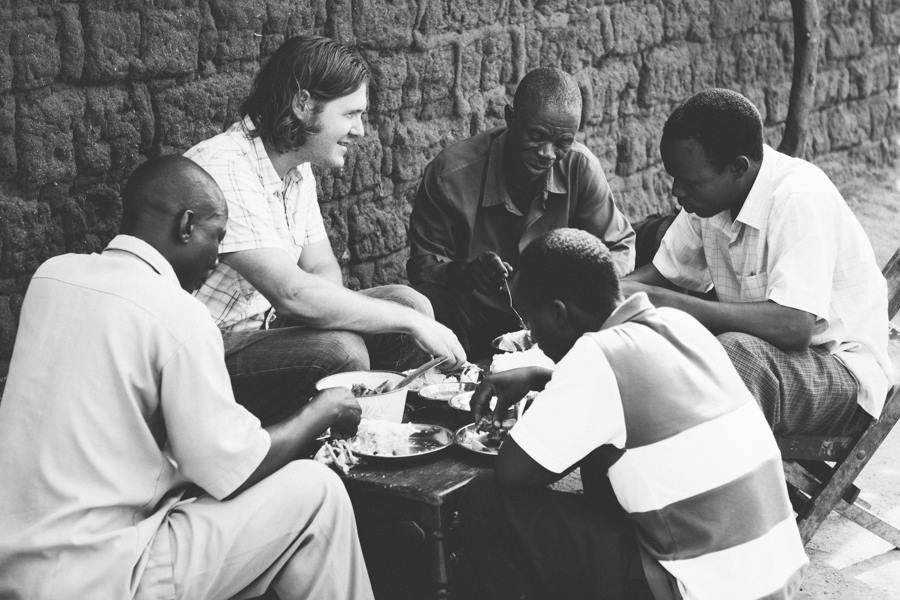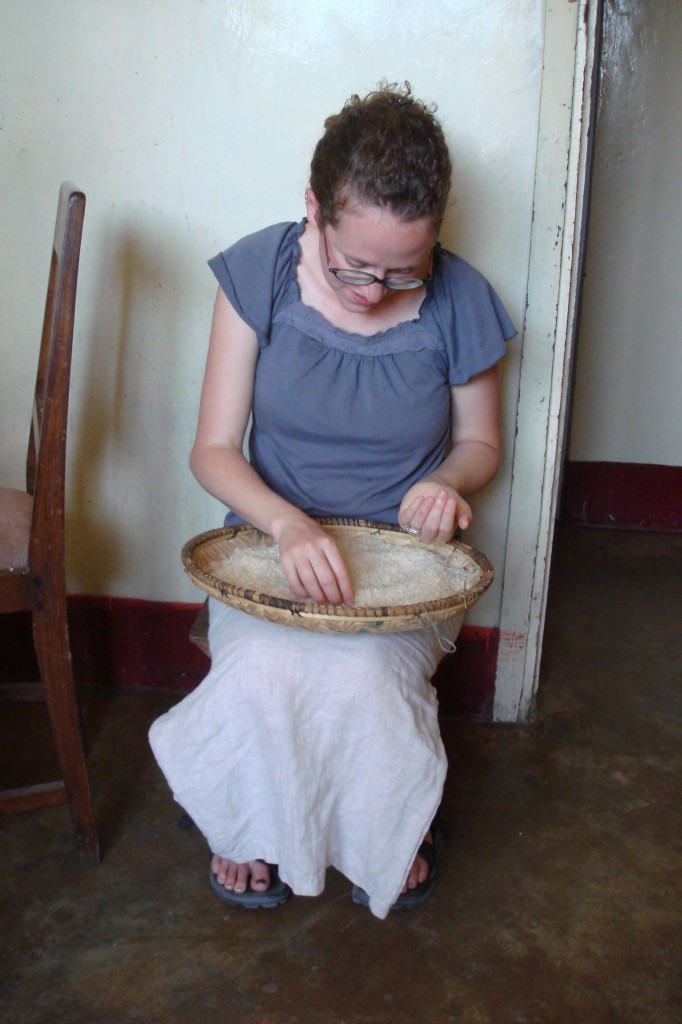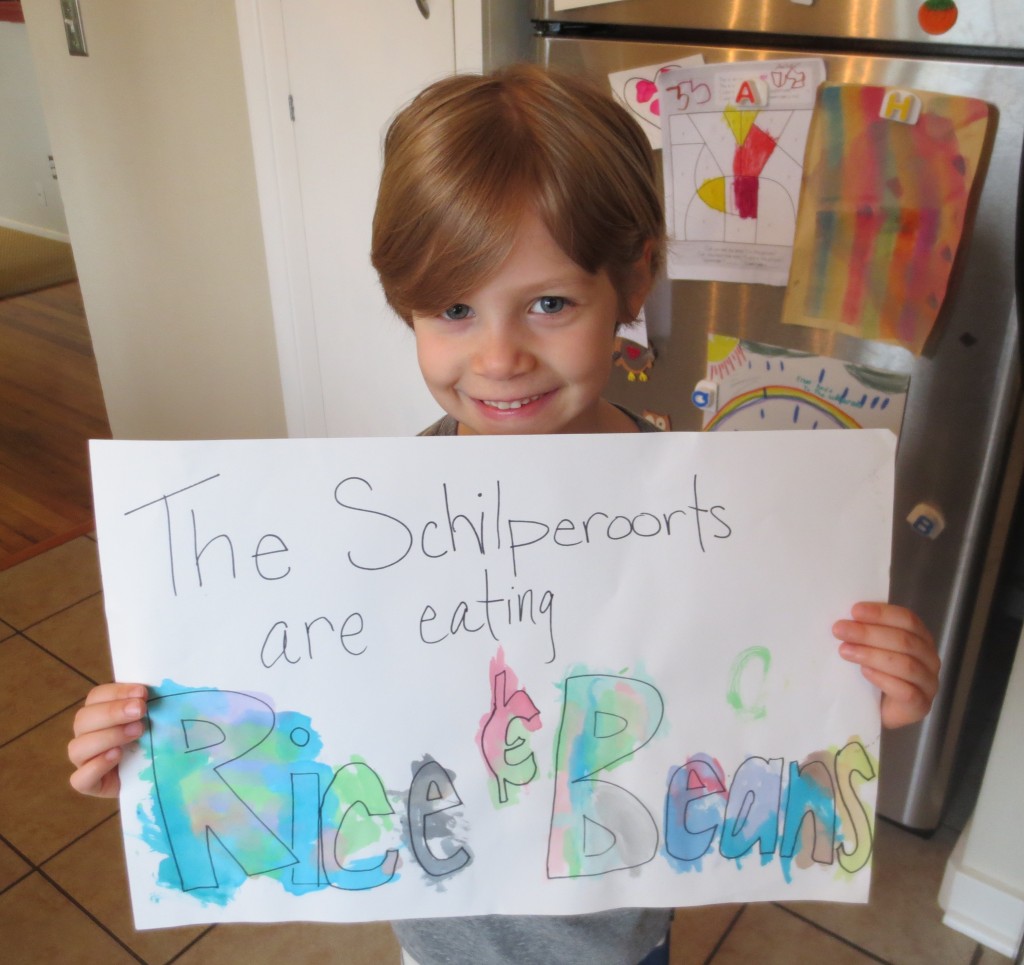
20 Mar Fasting & Feasting
by Casey Schilperoort
I have been thinking about fasting, perhaps because we spent all of March eating rice and beans at every meal. I have also been thinking about feasting (perhaps for the same reason). I used to think of fasting only as cutting something out completely, whether it was food, coffee, or the internet. But I feel like I have been learning about another kind of fasting. The kind of fasting that simply stands against over-indulgence and embraces less in the presence of a continual feast.
These thoughts began to surface during a trip to Tanzania. We were staying with a Lahash co-worker who had been living in Africa for over a year. At her home, rice and beans were the standard evening meal. One night she told us about a party she had thrown for a friend. With pride and excitement she described the meal to us–chicken curry over rice, stir fried vegetables, fried dough with guacamole and salsa, and cake for dessert. She even showed us pictures of the meal. I distinctly remember not being able to share in her excitement. What she described to me certainly didn’t sound worthy of a photograph. It just sounded like… dinner.
The more I thought about this, the more I realized that what I am used to as a typical dinner (some type of meat, two or three side dishes, bread, and something sweet to finish it off) is actually a feast in most countries of the world. A feast worthy of a celebration, of gathering your friends, of remembering with a photograph. I realized that my family was indulging in a feast every day. The lavish blessing of abundant, delicious food had become a common place expectation. I couldn’t recognize a feast even when someone showed me a picture of one.
I heard a leader from our church say, “We don’t know anything about feasting if we don’t know anything about fasting.” From my experience, I think he was right.
Our God is a God of feasts. Throughout the Bible we see him commanding days and even weeks of feasting. Many of these feasts are instituted while his people walk through the desert. They learn about dependence and provision as they eat simple meals of manna day after day. They learn trust as their dry mouths taste water pouring from a rock. In the desert you recognize a feast when it is laid in front of you. You anticipate its coming. You appreciate its taste and the one who provided it.
But our situation is a bit different. We are not living in tents in the desert. We are not scraping sand off the manna we gathered this morning. We have clean water pouring from stainless steel faucets instead of dirty rocks. We are surrounded by constant and seemingly endless abundance. Something changes when you live in a land flowing with milk and honey like we do. Even though it is the place God longs to bring his people, we have a tendency to forget him the fuller our bellies become. The same thing happened to the people of Israel when God led them into the land he promised. The same people who learned trust in the wilderness quickly forgot in the presence of plenty. God recounts the sad story through his prophet Hosea:
But I have been the LORD your God ever since you came out of Egypt. You shall acknowledge no God but me, no Savior except me. I cared for you in the wilderness, in the land of burning heat. When I fed them, they were satisfied; when they were satisfied, they became proud; then they forgot me. (Hosea 13:4-6)
God knows we have a hard time remembering him when our stomachs are constantly full. The rhythm of fasting and feasting is God’s grace for us. When we step outside of this rhythm to indulge in a lifestyle of continual feasting, we tend to grow fat and proud and forgetful – enjoying the gifts over the giver. For those of us drowning in more, the discipline of less is an expression of God’s love and care. God is only interested in restriction for the sake of freedom. He doesn’t want to limit our enjoyment, he just wants it to be centered on him. What he wants is nearness and intimacy. He wants us to remember him. To remember that what we have is from his hand. And that whether it is a little or a lot, it is love. We can most properly and sincerely thank him for abundance by not greedily indulging in it at the expense of our neighbor, his creation, and our own souls.
I have been trying to figure out what this all means for my family. Does it mean we eat more simply, so that we can truly appreciate a feast? How can our grocery store purchases show respect for our neighbor and God’s creation? How can we live more responsibly and sustainably within a culture that tells us we can have whatever we want whenever we want it? How can we replace personal indulgence with sacrificial generosity?
We don’t have very good answers to these questions yet, but it has been eye-opening to wrestle with them. There is a freedom that has come with realizing that our choices do not have to be ruled by advertisements and cultural norms. I am praying these lessons God started in East Africa will continue to shape our choices and our souls. I hope we can learn to be a family that recognizes a feast when we see it. I hope that all of us can grow in gratitude and learn contentment in the rhythms of more and less.
________________________________________________________________________
Article adapted from Hope Is Alive, a quarterly magazine publication of Lahash International. You can sign-up online to receive this free magazine.




